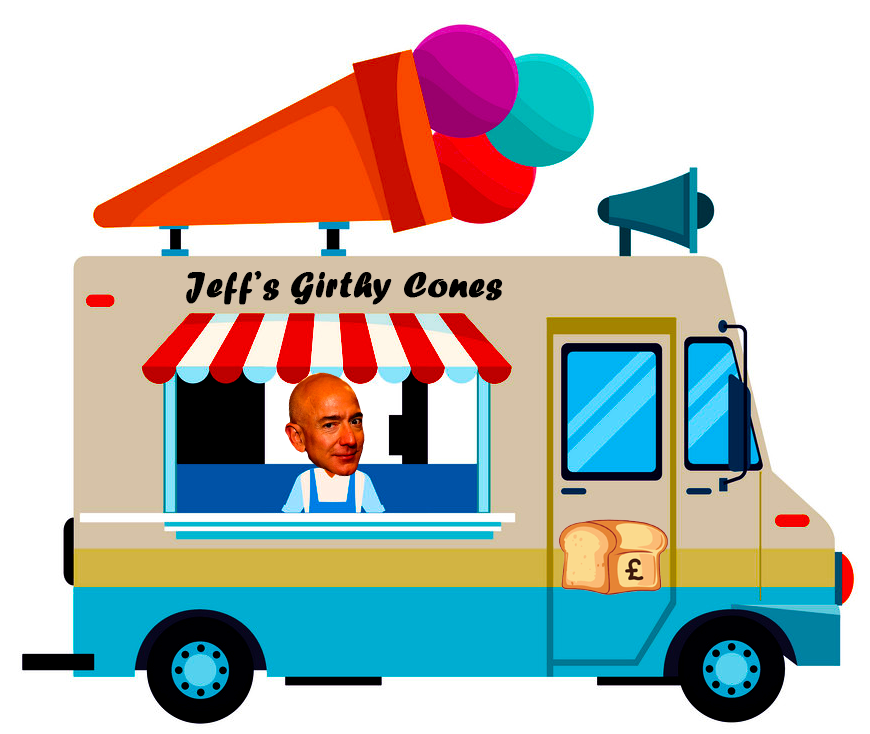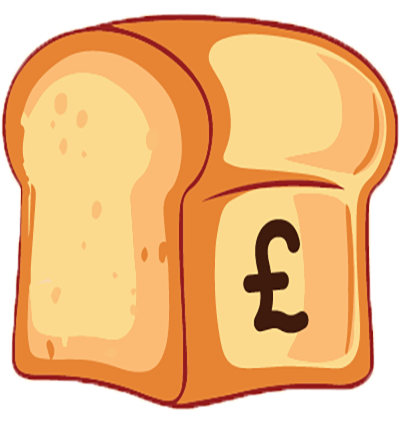How To Start A Food Truck Business (With @TheDuckTruck)
A complete breakdown of how to build a successful food truck company from scratch in the UK.
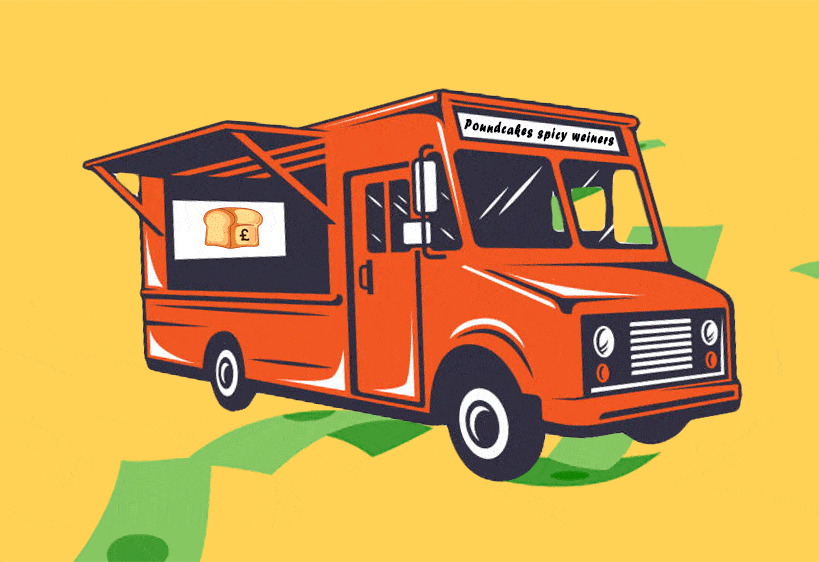
Are you a grown-ass man or woman that cannot believe they’re being micro-managed and second-guessed by some middle manager at the office?
Maybe you’re just sick and tired of Karen, and her stupid passive-aggressive emails, and you’ve started to dream about a way out of your bland corporate existence?
Maybe you just like food trucks, and you want your own business, and you’re wondering why this intro is so unnecessarily aggressive?
Whatever your reasons — If you are looking at starting a food truck business in the UK, then we’re sure you’ll get a tonne of value out of this article.
First, we asked a food truck entrepreneur (with more than 10 years of experience) a Whole load of personal questions about how he runs his business.
Interview With A Certified Food Truck Veteran
Ed Farrell – Entrepreneur, Owner of @TheDuckTruck
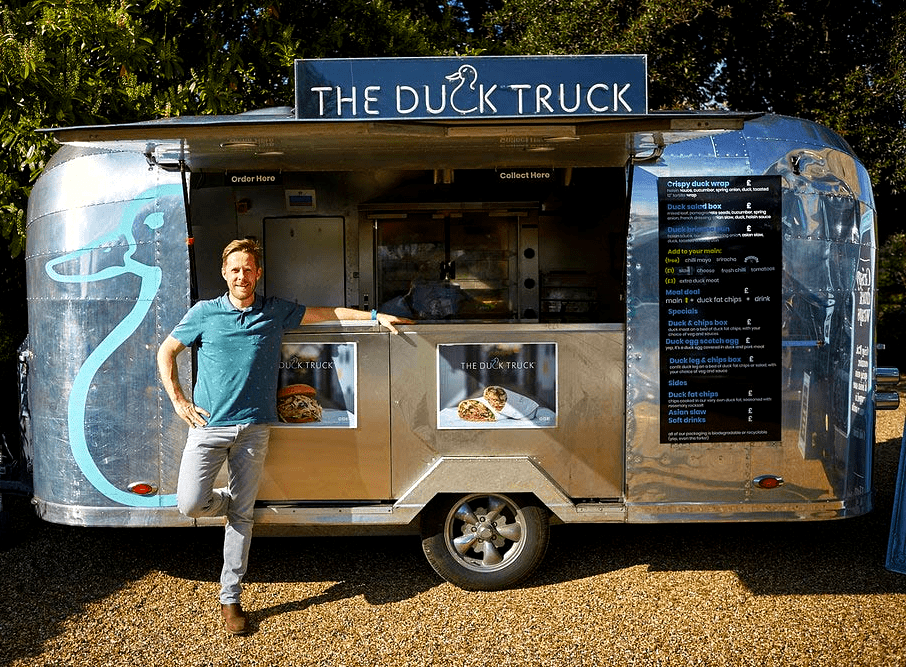
What got you into the food truck business? What were you doing beforehand?
I was working as a consultant in the food industry. So I had plenty of experience in food and how it worked, so to speak. Then I got a job on a duck farm developing duck recipes and products for supermarkets. That’s where I fell in love with duck (you have to love the product you want to sell). Then I read a book about the street food revolution in the US and thought, I can do that here! So I did.
It seems like some food trucks trade directly with the public, and some earn their money through private bookings, birthdays weddings, etc. Is this the case? What is your approach, and why?
Yes, those are the two main revenue streams. Private bookings are easier to manage and have less risk. You know what you need to charge and what profit you will make. Selling to the public and at events is way riskier as you might not sell anything. But with risk often comes reward.
What kind of licensing/paperwork do you need to sell food from a van in the UK?
You must register as a food business with your local council, this is essential. But that’s all you need. Then they will come and assess you and give you a food hygiene rating (but don’t confuse this with registering as a food business). You also obviously need liability protection insurance.
15 WILDLY LUCRATIVE FOOD BUSINESS IDEAS
Obviously, there will be plenty of seasonality and difficult times. But out of interest, how much can a food truck like yours make on a good day? Is it a good living? Can you give us some numbers?
That’s the million-dollar question. There is no answer and absolutely no guarantees. Some days you will take £200, especially if it’s raining! Some days you could take £2000. That’s London market examples. At festivals and events you could expect to take around £10k per day, but your overheads are absolutely huge. What you need to do is gain experience, and discover events that aren’t too expensive but offer a really good trade. There are a lot of opportunities available, but not many that will make you good money. Most are too expensive these days. That’s why private events can be good, because the wins aren’t as big but you can’t lose.
Can you just park your food truck anywhere?
No. You need permission. If it’s private land you need permission from the land owner. If it’s public land you need permission from the council.
The oil and gas price increases have been crippling small businesses in hospitality this past year. How have you managed? Are you optimistic about the future of your business?
Yes. I’ve had to increase my prices sadly to cover the costs. The next 6/12 months are going to be extremely difficult.
Do you have the ambition to grow your venture? If so, how? What can you do to grow something like this?
I did have ambition and I had 3 permanent sites in 2019. Then Covid happened! I lost 2 sites and a lot of money. So I’ve lost the ambition to grow, at least until I’ve paid off my Covid debt.
How to avoid running your food truck business into the ground
Our 3-point plan to building food businesses that last
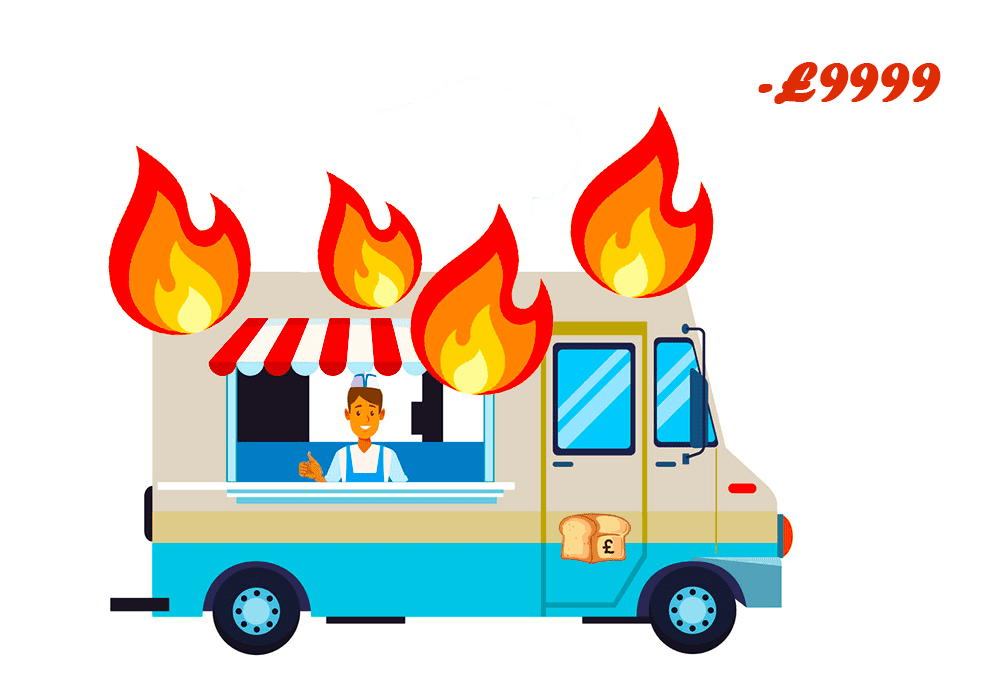
1. Make sure you’ve got enough cash
If the last 2 years have taught us anything, it’s that F+B businesses need cash.
1 in 7 restaurants and pubs closed permanently through covid. When restrictions were lifted, Russia went to war with Ukraine and the price of gas rose 424% in a year. Then the cost of food went up by 11.6%. Then chefs’ average wages went up by 12%.
To even think about doing this thing, you really need to have enough capital to cover your startup costs plus 18 months’ fixed expenses.
How much does it cost to buy a food truck in the UK?
A decent food truck will set you back anywhere between £5000 and £30,000. Here are a few decent deals I found when researching this article:

Let’s say you’re going to spend £25,000 getting your business off the ground. You’re going to work alone, trade in London, and you’re going to live modestly on £1200 a month before tax. If insurance and tax come to £3000 / year, and permits costing £600/month, with energy coming to £600/month –
Reasonable capital for a new food truck business: £74,700
If you are strapped for cash, you can save money on buying the van and your own wages. But sadly, most of your other fixed costs are pretty unavoidable.
Secondhand everything, beans on toast for dinner budget for a food truck: £60,000

Stop eating out-of-date cake!
The Poundcake Newsletter helps ambitious young foodies build wildly lucrative businesses.
2. Do your goddamn research
Once you’ve got the money together, It’s time to flesh out your concept. What is this thing you’re building? Here are the questions you should be asking yourself:
What will your product be?
Look at a hundred food vans and market stall owners in your area and online. What do they offer? Who’s doing well? Take a few weekends to do nothing but try other people’s food, and have a good nose around their operations.
How much will your product cost you to make? How much will you charge?
If you dont think food costing is a pain in the *ss, you’re not doing it right. Really you should know exactly how much each item on your menu costs you to produce.
food costing is definitely time-consuming, but it isn’t complicated. Here’s an article that tells you everything you need to know.
What about your brand?
Great food trucks have super memorable branding. This can make a huge difference to your bottom line, so it’s worth spending some time brainstorming different puns/name concepts associated with your product. Here are some absolute crackers:

How will you market your business?
“It’s not what you sell that matters as much as how you sell it!”
Brian Halligan, CEO & Co-Founder, HubSpot
There are a tonne of ways that you can go about marketing your truck. If I were you, I would look to brilliantly marketed small businesses like Browniegod for ideas. Whatever strategy you decide to go with, make sure you take this side of the business seriously.
Where exactly will you trade?
This might seem like something you can iron out later, and maybe it is. But speaking to Ed, it seems like finding the right pitch is huge. You need to find, basically, underpriced foot traffic. Most of the obvious places to put your van are bloody expensive.
3. Get your paperwork in order
I know. You’re likely getting into the catering business because you hate all this. Well sorry, but there are 3 certainties in life. Death, taxes —
And that the government will fine your *ss if you give them the slightest reason.
With that in mind, make sure you’ve got all of this taken care of:
Register as a food business. It’s free.
Get your food hygiene rating. Once you’ve registered your business, the EHO will schedule a visit. (They might not arrive before you open, and that’s all good — you just have to make sure they know you exist.)
Get all your relevant insurance —Van insurance, road tax, liability protection insurance.
Permits — get your permits from the local council of wherever it is you want to trade. Hopefully, you’ve found yourself an absolute cracker of a location. If you’re planning to trade on private land, then you just need permission from the land owner.
A huge thanks to Ed from The Duck Truck for sharing his insight.
